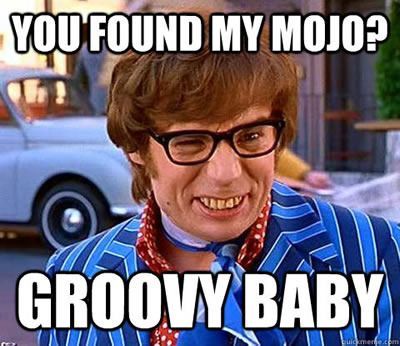How to deal with tyre kickers
So, you have a client that doesn’t appreciate the value of your service or product…..

It’s a tricky one but the solution is relatively simple.
You need to shift your mindset.
I said simple, not easy to do!
It’s a lesson that some business owners learn early on in their journey, some later, and some, just never get it.
You see, that customer that wants you to do the job for next to nothing… well, they’re not your customer! They belong to the business owners that never learn this lesson, the ones that buy job after job after job, continually undercutting you and your competitors!
Leave them to it and be grateful that they exist. You see, they keep the customers that you hate working for, away from you allowing you to focus on the great customers.
You see, you’re good at what you do, in fact, you’re great! So your prices reflect that.
What you really need to understand, is why your so great. Not only that, but you need to be able to articulate that in your marketing.
If you’d like help in doing that, reach out and let’s chat!
If you'd rather carry on dealing with price objections, that's cool!
I've put together some of my favourite responses to help you do that:
My top responses to price objections will help you to establish whether or not your just dealing with a tyre kicker, or you have someone that sees the value, but just can’t quite muster the cash right now.
So, here goes:
"Are you the cheapest business amongst your competitors?"
This is a great line to be able to pull out. The chances are, your prospect has to demonstrate the value in their own product or service, so this will resonate immediately. If you can deliver this line with a hint of cheeky humour, it is likely to go down well and strengthen the relationship between you and your prospect.
"[Silence]"
Sometimes the most powerful response is no response. When you fall silent, the prospect will want to fill the silence, in doing this they are likely to tell you exactly what is stopping them from buying allowing you to address it. The most simple of all of the responses but the hardest one to master and get comfortable with, try it and you’ll see what I mean.
"Too expensive compared to what?"
"Expensive" is a relative term. Do they already have a quote from one of your competitors? Do they mean they don’t understand what will be their return on investment? If you can establish this, you can better help them understand the true value.
"I hear you. The best products are often more expensive." Or an all-time favourite of mine “Expensive, yes, reassuringly so.”
Both of these responses will quickly separate those who simply can’t afford it from those that are hellbent on stripping you of any profit before they will buy. Sales expert Geoffrey James once said, "a price objection isn't 'real' until the customer has brought it up twice."
"Is the price the only thing that's stopping you from buying?"
This will allow the prospect to raise other concerns if they haven’t already.
"Okay. So which part don't you want?"
This tells the buyer that the price reflects the value, for a lower price, they must sacrifice some of the value your product provides. Generally, this will encourage them to reconsider and finish of the purchase.
"What ROI you're wanting to see?"
This question adjusts their mindset from ‘cost’ mode to ‘value’ mode. It will get them thinking long term about the benefits of your product meaning you can go to work on reinforcing how valuable your product really is.
"How much will it cost you if you do nothing?"
This will help them to realise the true value of your offering. This is particularly effective when the buyer is emotionally driven because it reminds them that they truly need what it is you have to offer and that their life won’t improve without it.
"Is it a cash flow issue, or a budget issue?"
Using this will help you quickly identify if there is a solution that is mutually beneficial. It could just be a case of having to agree payment terms to help the sale go through whereas with a budget objection, they either need to find someone cheaper or settle for a lesser service. Where cash flow is the issue, the buyer will be grateful for your help in it possible to purchase increasing their long term loyalty to you and also the chances of them making referrals. It can be a great strategy if your cashflow allows it to be an option.
"Thanks for your honesty. How much were you thinking of spending?"
The prospect's answer will reveal whether they're in the right ballpark or way off piste. This response turns the conversation back to the prospect, they’ll be forced to tell you if they have any intention of buying or not which could save you a lot of time and heartache.
"How soon would you need to see the ROI for this to work for you?"
Simply stating that they will see an ROI isn’t comforting for any prospect when they have no idea how long it will take to see it. Also, they’ve heard it all before! Find out how soon they would need to see the ROI realistically to make it a viable option, work the numbers through with them. It may be that for their budget, there isn’t a solution on the market that will show them the ROI they are looking for meaning they will need to re-evaluate. This will help you either find the right solution or know that it’s time to walk away.
"Don’t just look at the upfront cost, if we break it down, it’s only £….. per week."
Nobody likes to be hit with a 4 or 5 figure sum. Understand how the figures break down over days, weeks, months and years and be ready with them. Breaking it down into smaller manageable chunks can really help your prospects see the value without being so daunted by the price tag.
"What makes you believe this [product/service] is too expensive?"
This encourages your prospect to elaborate on their reasoning. It helps you understand who your customers are and how they think. Not only can you address the concern there and then, but you can work this into your marketing in the future to prevent it from being raised again in the future.
"Is there anything I haven’t clarified properly for you?"
Let them speak. See where their thoughts are at. Come back and address any points they raise, make a note of it and build it into the process next time. Every day is a school day so take the opportunity to hone your skills.
"I understand. In fact, I’ve had several other customers just like you who were surprised by the price at first. But what they found was ... "
Empathise with the prospect, and address their concerns with a strong case study or 2 that demonstrate the value. The more similarities between your prospect and the case study you use, the more they will relate and the more impactful it will be. Show them real results, if you have facts and figures to show them, go for it!
I hope you find something of use here.
In business we all need some help from time to time. I’m no exception.
If you liked this article and would like to throw some other ideas around that may help you with your business growth journey, hit the button below, book in a call at a time to suit you and lets chat!






